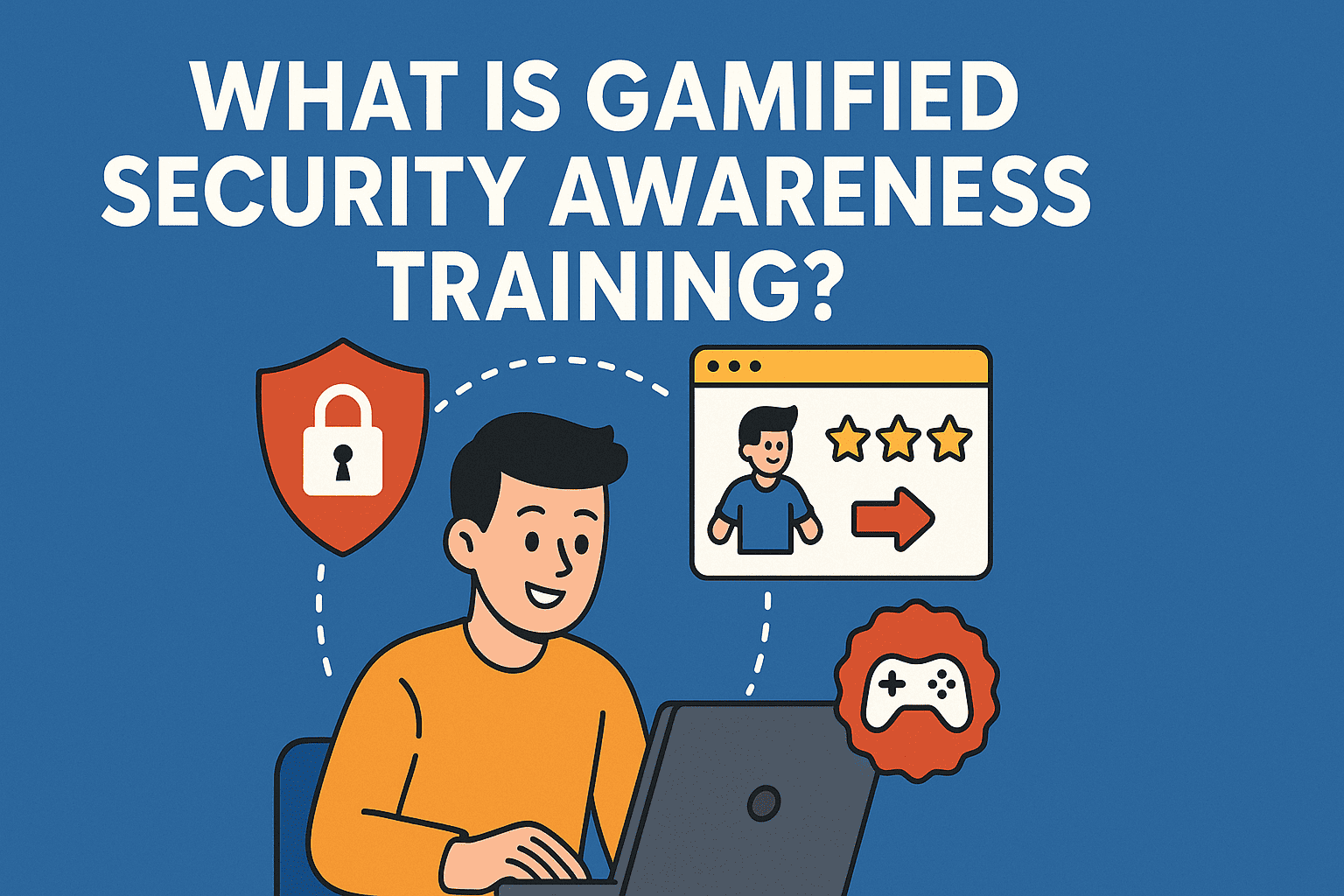What is Gamified Security Awareness Training?

Strong 8k brings an ultra-HD IPTV experience to your living room and your pocket.
Cyber threats are not just technical issues; they are human issues too. Phishing attacks, poor passwords, and the inherent hazards of careless clicking are some of the primary concerns that can lead to an organization experiencing a data breach. While most organizations have protections in the form of firewalls and antivirus, few consider the weakest link: people.
This is where Gamified Security Awareness Training comes in. Instead of sticking to traditional awareness programs full of dry lectures and PowerPoint presentations, this training offers a compelling and effective alternative that can heighten your staff's cybersecurity awareness and elicit actual behavioral change. Progressive cybersecurity companies like Threatcop are helping organizations put these people-centric training methodologies into practice at scale.
In Gamified Security Awareness Training, game factors such as points, badges, leaderboards, and practice cases are used to instruct staff about cyber risks. While a training video may help, employees also try out challenges, quizzes, and practice with cases similar to real cybersecurity threats.
Consider it like a practice tool for cybersecurity. Employees are given opportunities to learn about phishing and strong passwords without facing serious harm.
Why Are Businesses Switching to Gamified Training?
Traditional cybersecurity training often misses the mark:
- It’s boring and repetitive
- Employees don’t retain the content.
- It feels more like a checkbox activity than a valuable exercise.
Gamified learning means approaching things differently. It engages learners by using competition, prizes, and activities within the game to increase their engagement and ability to retain information.
According to a study by TalentLMS, 83% of employees say gamified training motivates them. That’s a major win in the fight against cyber threats.
Core Elements of Gamified Cybersecurity Training
- Points & Leaderboards – Users earn points for completing challenges and see how they rank among peers.
- Badges & Rewards – Recognition for high performance encourages repeat participation.
- Real-World Scenarios – Phishing simulations, ransomware cases, and social engineering tactics are played out interactively.
- Instant Feedback – Users get real-time responses to their choices, learning as they go.
- Progress Tracking – HR and security teams can monitor training completion and performance over time.
Benefits That Go Beyond Engagement
Gamified cybersecurity training offers more than just fun and games:
- Long-Term Retention: Learning from interactive cybersecurity games allows for better retention of knowledge of the material
- Reduced Risk: Employees are better positioned to notice actual attacks taking place.
- Behavioral Change: Encourages you to use strong passwords and review anything that could be a suspicious email.
- Scalable for Remote Teams: Cloud-based platforms make training accessible across regions and time zones.
Gamified vs. Traditional Security Training
|
Feature |
Traditional |
Gamified |
|
Engagement |
Low |
High |
|
Feedback |
Delayed |
Instant |
|
Format |
Slides & Text |
Interactive Challenges |
|
Retention |
Short-term |
Long-term |
|
Customization |
Limited |
Dynamic |
Perfect for Hybrid & Remote Workforces
As remote and hybrid work models become the norm, cloud-based gamified training platforms provide a seamless solution. Employees can log in, participate, and monitor progress in real time, from any location.
This flexibility also grants organizations the ability to release smaller, bite-sized simulations each month while maintaining a nondisruptive security program.
Topics Well-Suited for Gamification
Some cybersecurity topics naturally fit into a gamified structure:
- Phishing Detection
- Password Hygiene
- Social Engineering Awareness
- Data Handling & Classification
-
Safe Browsing Practices
In security awareness games, users encounter dangers and need to respond quickly, making mistakes safely.
Final Word: It's Time to Play Smart
Gamified cybersecurity training is not just a trendy concept. It provides an effective, scalable, and economical way to embed lasting security habits inside any organization. Since phishing threats and malware attacks are on the rise, companies have to ensure their training is applicable in real life and not only in theory.
Currently, no matter if you run a small firm, start-up or big company, reconsidering your training is important. Yes, using games in training is enjoyable and mainly, it is getting the job done. Organizations trying to develop a cyber-resilient culture can leverage the help of a company like Threatcop, which also combines gamification with behavioral change by providing role-based security awareness training.
FAQs
Q1: How often should gamified cybersecurity training be conducted?
At least quarterly, with mini-simulations monthly. Frequent exposure keeps security front-of-mind and allows people to adapt to evolving threats.
Q2: What topics are best suited for gamification in security?
Phishing awareness, social engineering, password management, and data handling are all ideal topics. They’re common issues that can be easily simulated.
Q3: Is gamified training effective for remote teams?
Yes. In fact, it’s perfect for remote teams. Cloud-based platforms allow everyone to participate, track progress, and compete—even across different time zones.
Note: IndiBlogHub features both user-submitted and editorial content. We do not verify third-party contributions. Read our Disclaimer and Privacy Policyfor details.







